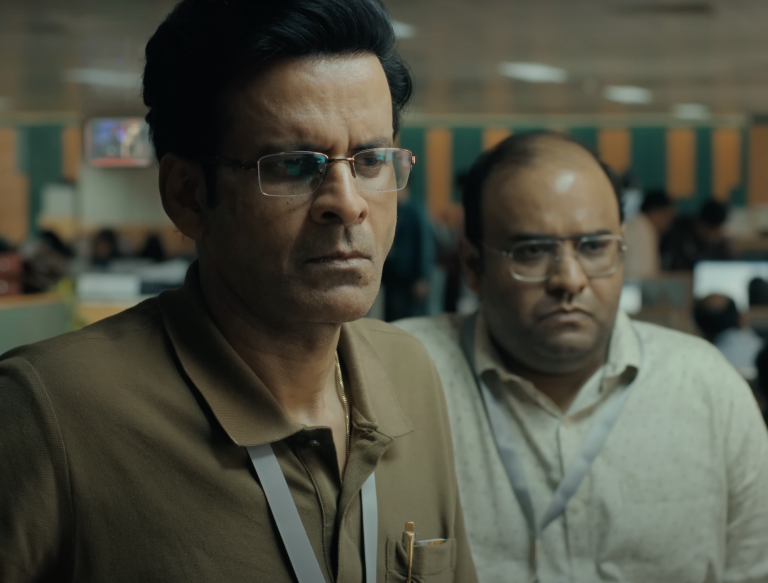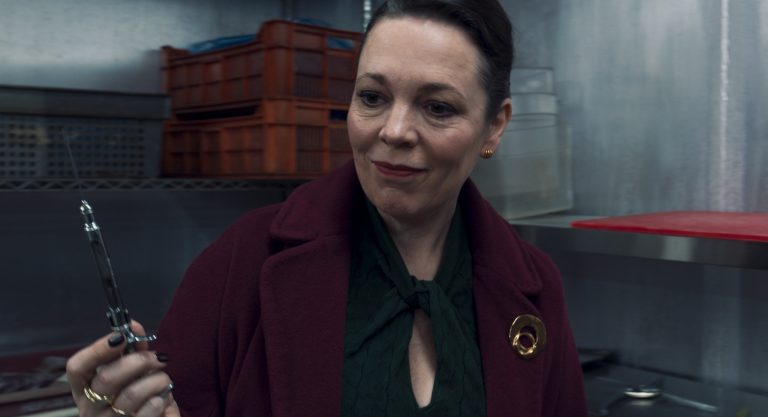Inshallah A Boy (2023) Movie Review: Inshallah A Boy (2023), a realist drama in the spirit of Dardenne Brothers, marks director Amjad Al Rasheed’s Cannes feature debut as well as his home country Jordan’s. The film, which is set to compete for the Critic’s Week Grand Prize in this year’s ceremony, is an assured and provocative exploration of the archaic patriarchal laws in the country. Its narrative couldn’t be more urgent considering the dire state of women’s rights around the world, especially in the Middle East. With his incendiary yet surprisingly grounded feature, Rasheed joins the likes of contemporary male filmmakers like Aleem Khan (After Love (2020)) and Saim Sadiq (Joyland (2022)) in exploring feminist concerns in Muslim lives.
As the film opens, we follow our protagonist, Nawal (Mouna Hawa), trying to retrieve her brassiere stuck in a wire below her balcony. A slip causes it to fall on the streets in front of a passerby, embarrassing Nawal and causing her to hide inside her room in shame. The film, however, challenges this coyness (widespread in Orientalist discourse regarding Muslim women) in its very next scene, as Nawal tries to initiate intercourse with her husband, Adnan, who is too tired to reciprocate Nawal’s affection.
The very next morning, as Nawal’s daughter, Nora (Celina Rabab’a), tries to wake her father—the latter is unresponsive. In a shocking edit, we cut to Adnan’s funeral and a grieving Nawal draped in black. If this tragedy wasn’t enough for Nawal, she learns that her husband hadn’t signed the documents on her apartment—implying that the property now belongs to Adnan’s closest relative, i.e., his brother Rifqi (Hitham Omari). Since Nawal doesn’t have a son, she cannot lay claim on the inheritance even though she paid most of the mortgage working as a nurse to an affluent Christian family in the city.
Rifqi, to who Adnan owes money, suggests selling his pick-up truck, but Nawal is reluctant to let go of the vehicle due to memories associated with it. What begins as disagreements between the two soon turns into a nasty court battle as Rifqi demands the money owed to him. Nawal realizes that the only way she can prolong the court proceedings and get the cash is by pretending to be pregnant, but this lie comes at a cost to Nawal and those around her. Meanwhile, Lauren (Yumna Marwan), the daughter of the Christian family that Nawal works for, is dealing with her philandering husband and a personal crisis. Will these two women from differing socio-economic backgrounds find some common ground to help each other?
Director Amjad Al Rasheed based the screenplay on a real-life ordeal faced by one of his close relatives. Initially wanting to make a black comedy out of the subject, Rasheed was dissuaded by the film’s producer regarding the humorous tone, leading him to adopt a more grounded-realist template to explore the issue. This social realist approach (perfected by the Italian Neorealists and filmmakers like Ken Loach and Dardennee Brothers) is employed by Rasheed with perfection with minimal use of music and handheld camera movements.
While the screenplay hits several familiar beats, Rasheed’s feminist polemic helps overcome its predictability. Tackling inheritance laws, abortion rights, and the precarious position of widows in Jordanian society without resorting to melodramatic sensationalism or the abject misery-porn of art cinema, Rasheed weaves a convincing critique of archaic patriarchal practices.
In the vein of an Ibsen play, the film poses a dialogue against populist religious morality and how its violation continues to be a norm despite it being a sacrilege. As Nawal interrogates the people around her, she soon begins to feel the edifices of her own beliefs crumbling. Apart from this commentary upon state and religious-sanctioned morality, the film also explores how a male-dominated society continues to be controlling despite seeming benign and humanist on the surface.
For instance, while Rifqi is unabashed in claiming his brother’s apartment, he insists that he is not a monster and will not throw Nawal and her daughter on the streets. Similarly, Nawal’s helpful brother, Ahmad (Mohammed Al Jizawi), is vexed when during one pivotal moment, Nawal steps outside of her house after dusk (this being forbidden to widows) and threatens to break her legs if she dares disobey him.
This thoughtful screenplay wouldn’t have as much of an impact if it weren’t for Mouna Hawa’s defiant performance that creates a holistic and intimate portrayal of Nawal’s character. Navigating single parenthood amidst a financial crisis, Mouna channels her anger, frustrations, and defiance unapologetically. In a courtroom altercation with Rifqi, Mouna deftly portrays Nawal’s anger against the injustices incurred upon her by her relatives and the state. Equally powerful is Yumna Marwan as Lauren, whose bonding with Nawal is one of the film’s major highlights.
Like its sarcastic title, Inshallah A Boy poses a caustic critique of gendered binaries and how they continue to wield enormous power in our socio-cultural proceedings. While its narrative leanings are somewhat familiar, the film makes up for these shortcomings with polished execution and a star-making performance from Mouna Hawa.




![Stuff and Dough [2001] Review – Fresh Oppurtunities, Same Dead-Ends](https://79468c92.delivery.rocketcdn.me/wp-content/uploads/2020/11/Stuff-and-Dough-2001-768x432.jpg)
![To Leslie [2022]: ‘SXSW’ Review – An excellent Andrea Riseborough performance propels this familiar redemption story](https://79468c92.delivery.rocketcdn.me/wp-content/uploads/2022/03/To-Leslie-1-768x432.jpg)
